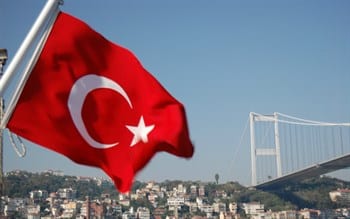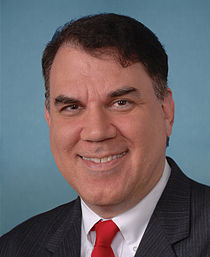A few years back, as we watched Greece, Ireland, Italy, Portugal and Spain slide into chaos, it seemed that we were caught between two impossibilities: the seeming hopelessness of holding the euro zone together and the utter unfeasibility of pulling it apart. Somehow, however, they muddled through, and the world breathed a sigh of relief.
The thing about financial crises, however, is that you can never quite rest easy. One of my favorite economic quotes of all time is the description Rudi Dornbusch gave of the peso crisis: "The crisis takes a much longer time coming than you think, and then it happens much faster than you would have thought, and that's sort of exactly the Mexican story. It took forever and then it took a night."
This is also the story of Argentina and many another financially unstable country. There are periods when things seem like they might be on the mend, until suddenly they aren't. And I am beginning to wonder if the last few years haven't been one of those periods for Greece. From the Financial Times:
Many observers had until recently assumed that Greece was over the worst and that a reform programme dictated by the so-called troika of European and international institutions was delivering at least a modest recovery. Uncertainty returned on Monday when Antonis Samaras, the Greek prime minister, announced that he will hold a snap vote in parliament one week from now to choose a new head of state.
The selection of the Greek president, a constitutional figurehead, is normally insignificant. But the three-round poll, starting on December 17, is effectively a vote of confidence in the Samaras government. Calling it is a high-stakes gamble by the prime minister at a critical moment for Greece’s economy and for the broader eurozone.
Mr Samaras is gambling that victory would be a springboard for pushing through reforms that allow Greece to receive its last bailout payment from the troika and bring its four-year rescue to a close. If he loses — and the vote will be tight — Greece will be plunged into an immediate election which may well see the radical opposition Syriza party come to power. This prospect has frightened investors. On Tuesday, Greek shares suffered their biggest one-day fall since the 1987 global stock market crash.
Covering the Argentinian financial crisis at the turn of the millennium, I was naively puzzled by the failure of the government to do things that seemed to be obvious, such as stay on good terms with the IRS. A decade later, I understand that it's hard to talk about optimal economic policy in the context of a financial crisis. The citizenry sees that it is suffering, while its money drains off to bankers somewhere else. No matter how much better it might be to keep up those payments in the long run, it is very hard to maintain the political will to do so in the short run.
Now, many countries do manage to push their way through this conundrum and do the optimal thing for a country's long-run fiscal health, rather than the politically popular thing. But many others do not. In the next week, we may find out which category Greece falls into.



















